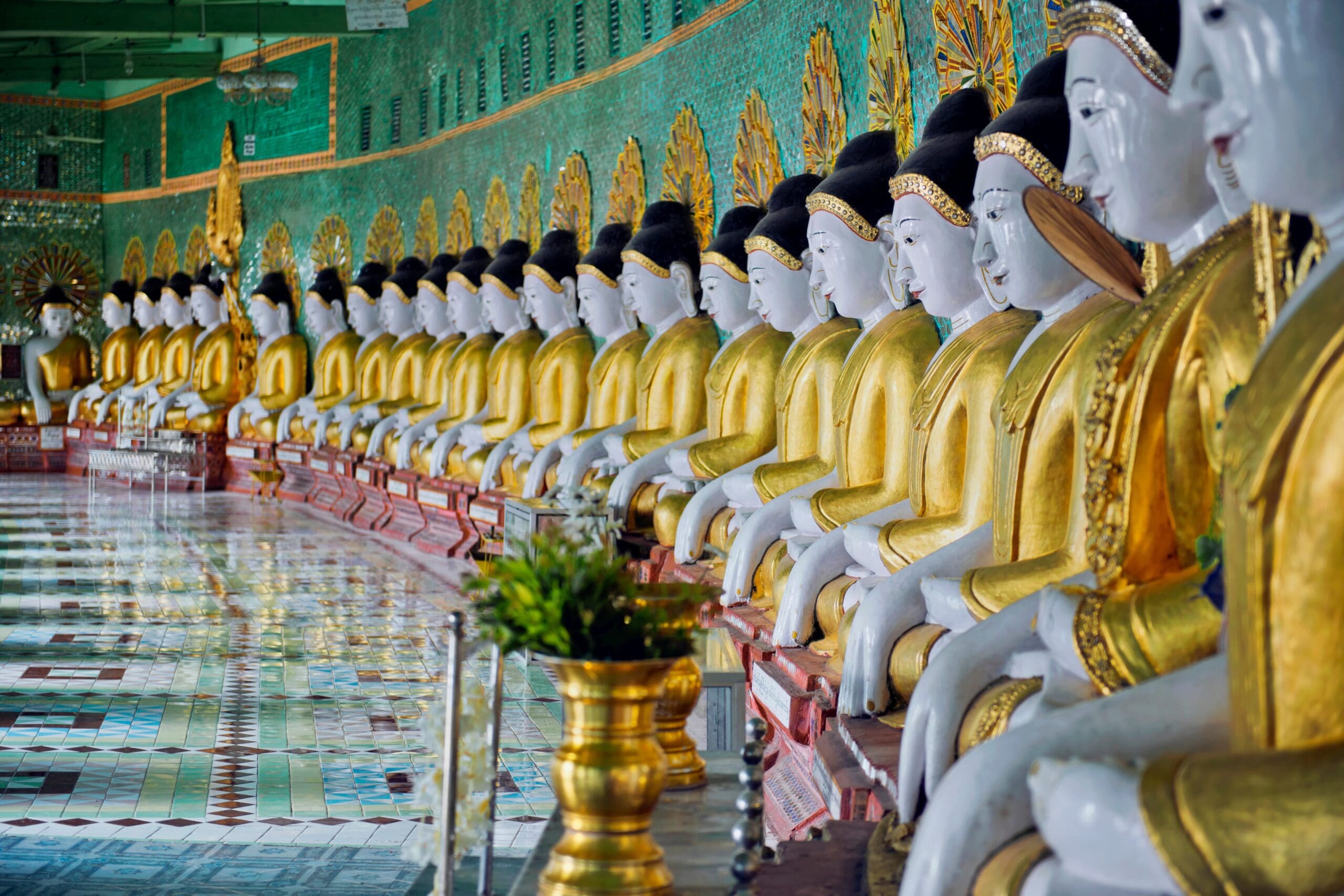Moving to a new country and new culture is full of surprises. One surprise for me when I moved to Southeast Asia was that every single temple is filled with idols. There is not just one idol per temple.
We once visited a temple which, when literally translated, is called “The Temple of 80,000 Idols.” It was in a part of the country that we hadn’t visited before. We were tourists there and able to take pictures freely. The temple was full of idols, tiny idols and small idols, medium-sized and giant. There were very, very old idols, some made of stone, some made of gold, some made of plaster and clay. Each idol is a reminder of a god whose desire for sacrifice is never satisfied. The temple itself represents a religion of fear.
We walked through the dark stone halls of the temple, with idols inset in every wall, nook, and cranny. The hall opened up to a larger chamber with a 20-foot high gold idol in the center, surrounded by LED lights, flowers, and gifts of fruit.
Idolatry is a religion of more. It is a religion with an appetite that is never satisfied and a thirst that is never quenched.
Idolatry is a religion of more. It is a religion with an appetite that is never satisfied and a thirst that is never quenched. Whatever sacrifice you give to idols will never be enough.
Seeing the idols in another culture revealed the idols in my own. Why are Americans so dissatisfied, always seeking but never finding purpose, always looking, always consuming more? Why are we full of anxiety, stress, depression, and disconnection?
Could it be that we are restless and dissatisfied because we are offering our lives to idols instead of giving our worship to the Living God?
God provides true peace and rest. Satisfaction and peace can only be obtained through relationship with the Living God. As Christians, we “abide” in God’s love. We do not earn it or strive for it. Our salvation is a gift that we accept in gratitude and thanksgiving.
So we ask ourselves: are our lives at peace, or are we always striving for something more? Even as cross-cultural workers, we must ask ourselves these questions. What consumes me? What consumes my time, energy, money, devotion, and dedication? What part of my life is never satisfied and never at peace? What sacrifices am I making to idols that are robbing my life of purpose, peace, joy, and unity with God?
We have to ask ourselves if we, too, have sacrificed at the feet of idols who refuse to be satisfied. When will we seek the True God who can provide the purpose and peace our hearts long for, and that our daily lives so desperately need? When will our devotion lead to fulfillment and peace?
Even as a missionary, I can at times be tempted to think God is satisfied by my sacrifices. After all, I have sacrificed for Him. God has called me to that sacrifice, and it pleases Him. I have gone up to the mountain of the Lord holding on to my small faith and His big promises. But it is His sacrifice for me that brings me into a peaceful, fulfilling relationship with the Living God.
The familiar story of Abraham offering Isaac is often told from the perspective of Abraham, a loving father who is willing to obey God no matter the cost, even if that means offering up his one son. And that is true and part of the story.
But the story’s hero is not Abraham. The hero is Jehovah Jireh: “the God Who Provides.” In this story, God has already revealed himself to Abraham, but Abraham still doesn’t exactly know what kind of god is the Lord?
It is His sacrifice for me that brings me into a peaceful, fulfilling relationship with the Living God.
Is God a god like the Canaanite god of the Ammonites, Molech, who will demand child sacrifice by fire for his wrath to be appeased? Can God be appeased for now? Will he ask for more later?
Will he be like Baal, who demands more and more, always upping the ante and requiring stranger offerings, more and more dedicated signs of devotion?
Or is YHWH different? Different from the demons the people have known in the past? Different from the idols?
Who is this God that is calling Abraham? Who is the God who is asking Abraham to put his faith in Him?
God is the God who is satisfied not by our sacrifice but by His sacrifice for us.
Abraham climbs up the mountain and prepares to sacrifice. But as Abraham raises his arm, knife in hand, to take the life of his son, the angel of the Lord stops him. And in this moment, we see that God is the God who provides the sacrifice that saves our life and brings us into a relationship of peace with him.
Worshiping the true God will provide us satisfaction and peace. God does require us to sacrifice, but he has already paid the price in full. We do not work to appease God; instead, full satisfaction is found as we accept the full love God offers to us.
As God called Abraham, God has called us. We must continue to offer our small faith. We must continue to cling to His big promises. But we must remember: it is God who is the hero of our story, too. He is the one who provides. He is the one who satisfies. And it is His sacrifice for us that will always be enough.
As we work across languages and cultures to share His love and bring Him glory, we remember that we are enough because His sacrifice is enough. We have peace and fulfillment because He has provided the sacrifice for us. Truly, “He is the atoning sacrifice for our sins, and not only for ours but also for the sins of the whole world” (1 John 2:2).












